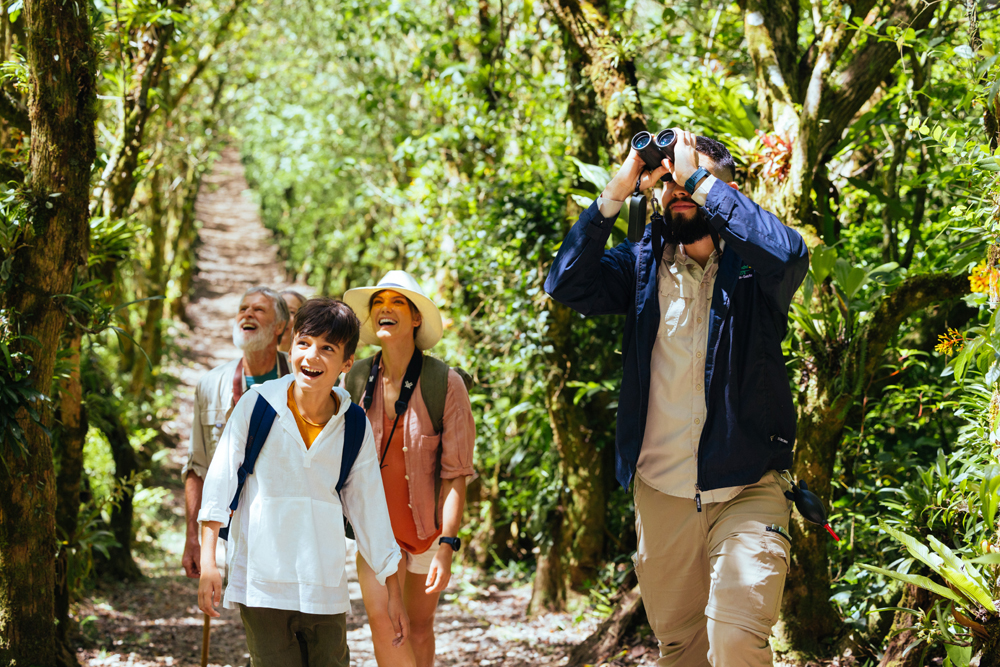In 2021, Hannah Hinders left the US for Costa Rica following a difficult breakup that left her struggling with anxiety, panic attacks, and alcohol dependence. "I was not mentally or physically healthy," she said.
Almost 4 years later, Hinders is still living and surfing daily in Santa Teresa. Her mental and physical health is now "better than ever." "I can't even describe the change it has made in my life," she shared.
While moving to Costa Rica isn't a universal solution, medical experts acknowledge the country's unique qualities, according to Yahoo. In an early 2025 interview about the alarming rise of colorectal cancer in young people, Otis Brawley, an oncology professor at Johns Hopkins University, said, "It's the prevention that makes me very interested in Costa Rica."
Brawley highlighted surprising statistics: Costa Ricans live 2 to 3 years longer than Americans, despite the US having a GDP over 300 times larger. Costa Rica spends just a tenth of what the US allocates to healthcare, yet its cancer mortality rate is 40% lower. "It's all based on lifestyle," Brawley stated.
 |
Illustrative photo: Visitcostarica |
Illustrative photo: Visitcostarica
According to the World Health Organization (WHO), the average life expectancy in Costa Rica in 2021 was 78.6 years, exceeding the US average of 76.4 years. Experts consider this a substantial difference in healthcare demographics. Similarly, Costa Rica's cancer mortality rate of 75.3 per 100,000 people annually is significantly lower than that of the US. According to the National Cancer Institute, the US rate nearly doubled this year, reaching 145.4.
So, what's Costa Rica's secret?
Firstly, fewer people smoke. Tobacco use is the leading cause of cancer. Smoking rates in Costa Rica never reached the highs seen in the US. Brawley suspects this is partly because, in the 1950s and 1960s, "Costa Rica was too small a market for the big tobacco companies to bother with." Later, as larger countries tightened regulations, tobacco companies shifted their focus to smaller nations. However, Costa Rica successfully implemented its own anti-tobacco regulations in the 2000s, leading to a sharp decline in smoking rates.
While national smoking rates have declined in the US, they remain high in certain states. As of 2022, 21% of West Virginia residents still smoked.
A traditional diet rich in fruits and vegetables is another factor contributing to longevity. Brawley believes Costa Rica hasn't experienced the same surge in colorectal cancer as the US because its traditional diet is healthier than the typical American diet.
"The fruits, vegetables, and healthy foods that Costa Ricans eat are a factor in their lower rates of all cancers, including colorectal cancer," he explained.
This is partly because these whole foods are less associated with obesity, which is a risk factor for cancer. In contrast, Brawley noted, "In the American diet, one of the contributors to the obesity epidemic is the ever-increasing amount of processed food."
Before moving to Costa Rica, Hinders worked a demanding job at the Pentagon and rarely cooked. "I was eating out at American restaurants, which is basically processed food," she said. "It wasn't a whole-foods, clean diet."
Hinders recalled that when she first arrived in Costa Rica, her surfing friends would ask, "Why are you eating that?" or "Why are you putting that in your food?" Her diet didn't change overnight, but her mindset did. Hinders realized that to improve her surfing, she needed to improve her diet. Now, she and her surfing companions eat freshly caught fish and tropical fruits they pick daily.
The benefits of eating like a Costa Rican extend beyond surfing. "We see diet playing a big role in longevity," said Ruiz-Narvaez, a public health professor at the University of Michigan who grew up in Costa Rica.
Over the past 20 years, Ruiz-Narvaez and colleagues have collected data on the habits and lifestyles of nearly 3,000 Costa Ricans aged 60 and older. In 2024, they published a study showing that those who regularly ate a "traditional" diet, centered on protein- and fiber-rich beans and white rice, had an 18% lower mortality rate compared to those who rarely ate these foods.
The professor added that the nutrient density of beans makes them particularly beneficial. He also noted that the traditional Costa Rican diet isn't just beans and rice; it's also abundant in fruits and vegetables, readily available in the region.
However, processed foods common in the American diet, such as deli meats, potato chips, and fast food, are increasingly prevalent in Costa Rica. Consequently, the country's colorectal cancer rate increased by 35% between 2000 and 2020.
A third reason for Costa Ricans' longevity is the reduced reliance on cars and increased walking. On her first visit, Hinders was captivated by Santa Teresa's single, unpaved main road lined with shops. "Everyone walks and bikes," she recalled. "It's completely different from where I grew up in northern Virginia."
Almost 4 years after moving, Hinders still doesn't own a car. She walks to the grocery store, sometimes three times a day. This contrasts sharply with the typical American habit of driving to a large supermarket like Costco weekly to stock up on groceries.
Another factor promoting longevity that Ruiz-Narvaez has studied is social connection. He noted that Costa Ricans have strong social ties through friends, church, and community groups. "In Costa Rica, it's common to have three generations living in the same house. You always have family around," he said.
Hinders said social gatherings are a significant part of her daily life in her new home. She and her friends gather almost every day to grill their freshly caught fish. "I've become a completely different person because of where I live, the lifestyle, and the people and community," she shared.
Binh Minh (Yahoo Life)












